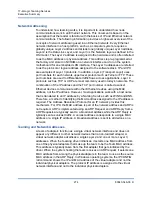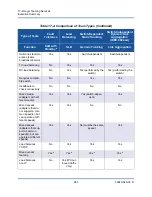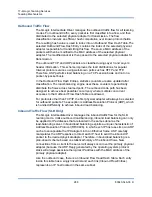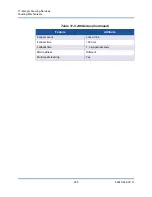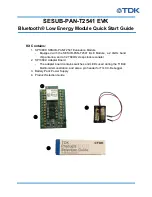
17–QLogic Teaming Services
Executive Summary
281
83840-546-00 D
Hardware Requirements
The various teaming modes described in this document place certain restrictions
on the networking equipment used to connect clients to teamed systems. Each
type of network interconnect technology has an effect on teaming as described in
the following sections.
Repeater Hub
A Repeater Hub allows a network administrator to extend an Ethernet network
beyond the limits of an individual segment. The repeater regenerates the input
signal received on one port onto all other connected ports, forming a single
collision domain. This means that when a station attached to a repeater sends an
Ethernet frame to another station, every station within the same collision domain
will also receive that message. If two stations begin transmitting at the same time,
a collision occurs, and each transmitting station must retransmit its data after
waiting a random amount of time.
The use of a repeater requires that each station participating within the collision
domain operate in half-duplex mode. Although half-duplex mode is supported for
Gigabit Ethernet adapters in the IEEE 802.3 specification, half-duplex mode is not
supported by the majority of Gigabit Ethernet adapter manufacturers. Therefore,
half-duplex mode is not considered here.
Teaming across hubs is supported for troubleshooting purposes (such as
connecting a network analyzer) for SLB teams only.
Switching Hub
Unlike a repeater hub, a switching hub (or more simply a switch) allows an
Ethernet network to be broken into multiple collision domains. The switch is
responsible for forwarding Ethernet packets between hosts based solely on
Ethernet MAC addresses. A physical network adapter that is attached to a switch
may operate in half-duplex or full-duplex mode.
If the switch does not support Generic Trunking and 802.3ad Link Aggregation, it
may still be used for Smart Load Balancing.
NOTE
All modes of network teaming are supported across switches when
operating as a stackable switch.








